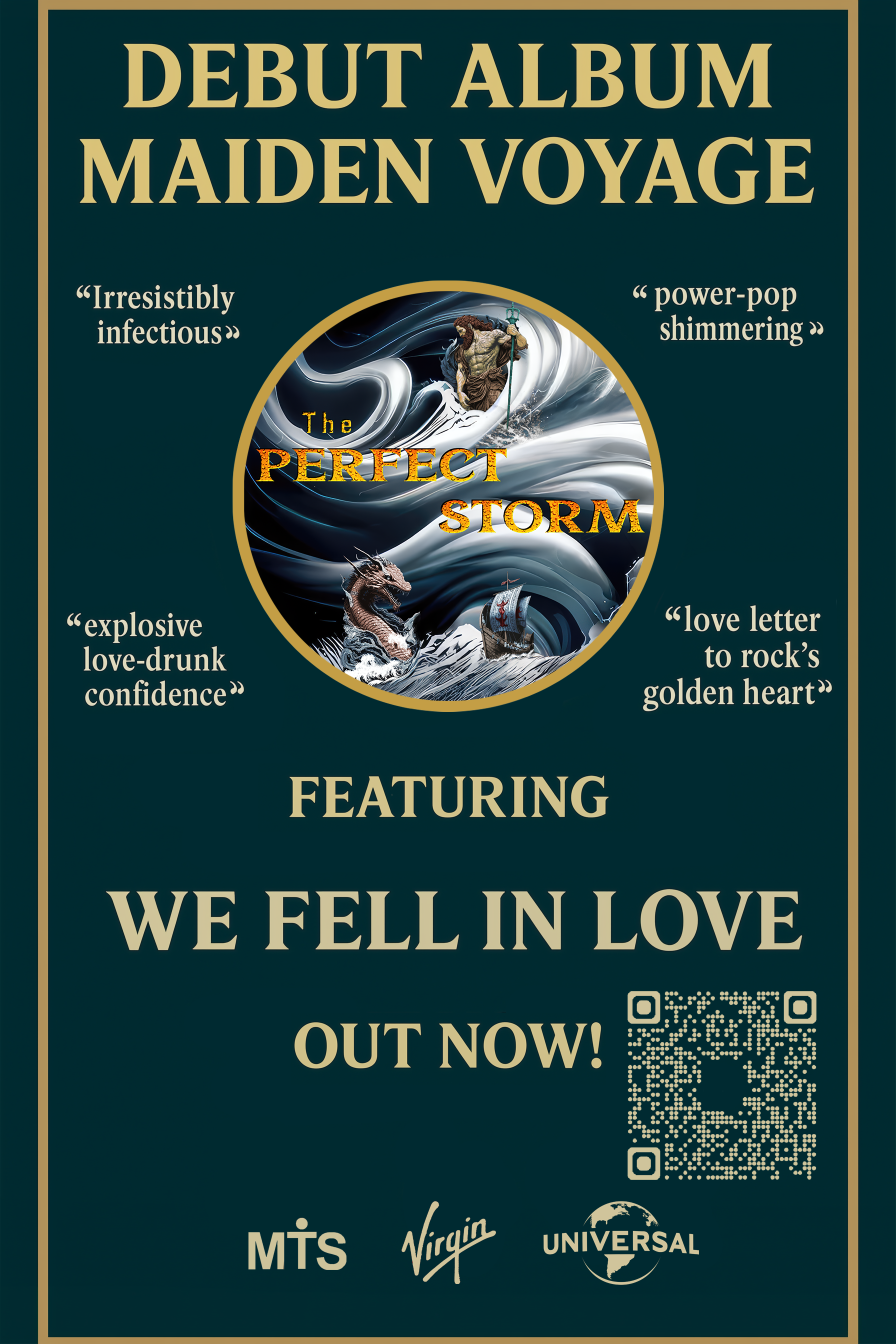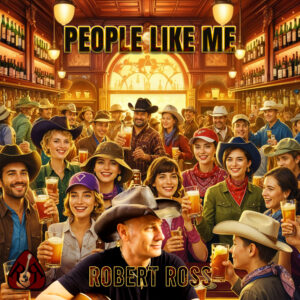In an era of meticulously layered production and self-referential irony, there’s something quietly radical about a song that dares to be plain. Not generic. Not shallow. But emotionally direct in the way pop once was—and rarely dares to be now. With their latest chart-topping single “We Fell in Love,” The Perfect Storm sidesteps the expected detours of genre-blending maximalism and lands somewhere far more delicate: the realm of the earnest.
The Albany-based trio—James Krakat, Matty Kirtoglou, and Ethan Lynch—build the song on foundations as old as rock and roll itself. Doo-wop harmonies, a mid-tempo groove, and a lyric sheet that reads more like a diary entry than a pop manifesto. But where many would veer into pastiche or parody, The Perfect Storm commit. And it’s in that commitment that the song’s modest power emerges.
At first glance, the lyrics appear unassuming. “She grew up way too fast / I didn’t think that I was even in her class.” Krakat isn’t writing poetry meant to be studied—he’s remembering, and the plainness of his phrasing is what gives it weight. There’s vulnerability in the way he places himself outside of her world, hinting at adolescent insecurity and admiration coexisting in the same breath.
The chorus, repeated with rising conviction, is nearly elemental in structure: “We fell in love / Oh what a love.” In less thoughtful hands, such a line might crumble into cliché. But here, it resonates—precisely because of its restraint. The band doesn’t try to describe the love. They simply name it, own it, allow it to hang in the air like a truth too big for further explanation.
Each verse plays like a moment suspended in amber. “I didn’t think that I was her kind of guy / The intelligent type with a naughty side.” There’s a soft self-awareness here, not just of the speaker’s surprise at being chosen, but of the archetypes we carry into relationships—who we think we are, who we believe others see us as. The song nods to these perceptions without ever skewering them.
The repeated refrain—“sha na na na na”—is perhaps the song’s most telling choice. It doesn’t pretend to be cool. It doesn’t update the form. It embraces a bygone language of pop sentimentality and trusts the listener to meet it without smirking. In 2025, that feels like an act of resistance.
There’s no grand arc, no final twist, no lyrical sleight of hand. Just three musicians, harmonizing around the kind of story most of us have lived and lost. “We Fell in Love” won’t dominate the year-end lists or revolutionize pop composition. But it will linger. And in doing so, it reminds us that not all revelations need to shout. Some of them just hum quietly beneath the skin, looping back like a memory you didn’t know you still carried.
–John Parker






